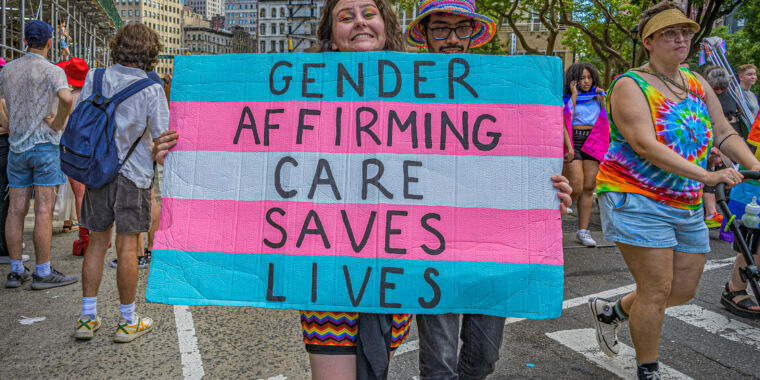The authors did note that they had to exclude survey results for 13 respondents because they puzzlingly rated maximal or nearly maximal levels of both satisfaction and regret. The authors speculated that these respondents may have misread the instructions and misunderstood that the scales were reverse scored for the two ratings.
lol exclude the data that doesn’t match your hypothesis and you can probe anything.
How would you interpret the data of someone who said they both have extreme regret and exteeme satisfaction with a procedure?
I would too conclude that the survey was flawed.
To be honest, I could believe that a lot of surveys just discard results that can’t process, for whatever reason.
Can confident conclusions be made from such surveys? Probably not.
“Study number 7592043 shows that gender affirming care is effective”
You lot:
“idk… just seems like there isn’t enough data… just asking questions, etc etc.”
Nope.
I do believe it’t effective. I don’t believe 0% regrets.
What about gender affirming care generally? We need a control group. Whom regrets getting plastic surgery?
why whom
